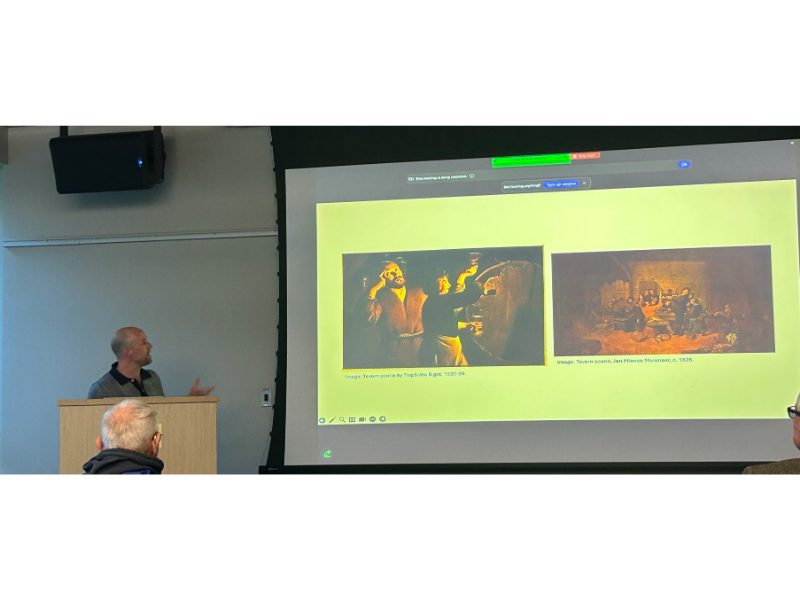By Julia Beauregard
Hometown Weekly Editor
Malcolm F. Purinton, a history professor at Northeastern University and a self proclaimed “beer historian” visited the Sherborn Library to discuss the historical importance of taverns during the days of early America and the American Revolution.
Purinton began the discussion by remarking the importance of looking at history through the lens of beer and other alcoholic beverages. As the historian shared in an article shared by Northeastern, “And you can see this across nearly every culture. Alcohol is a part of contract negotiations, celebrations, mourning—it’s all over the place.”
He, then, went onto discuss the the importance of taverns in early American history; it was a piece of European culture that was brought forth with them as the colonists established their new home in the United States. Purinton shared that the “priorities [of the colonists] were in what building they chose to build at what time,” and in areas of the developing United States, many towns opted to build a church, then a tavern, then a school building; thus displaying the regard for these third spaces.
Beer, as Purinton would share, was a crucial piece to the culture because it was the primary drink of many. As, “part of the beer making process is to boil it,” thus making it’s consumption preferable to the natural water because all of the microorganisms that could make one sick would die during the boiling process. Therefore, the existence of a tavern provided locals with a place to drink beer, the primary drink of the time, according to the speaker.
Tavern’s played a crucial role in the community, as the speaker shared, “these places [are] where the community would go… towns were required to have a tavern; a place of common entertainment.” It was in these buildings that the community would gather outside of church to build the bonds amongst one another to make the community strong. Purinton feels that these taverns were “an established part of the community that was necessary,” and proved this claim by displaying images to show how taverns were typically the central point in these early communities and were always in close proximity to the church.
The speaker helped attendees to explore the important role that taverns held in gathering community members together as the colonies developed, and the vital role they played in the American Revolution; these taverns served as a place where the minute men could gather to discuss war plans, plot for battles, and spread news from other colonies.
Purinton provided a unique perspective regarding the history of the American Revolution through the lens of beer.

























